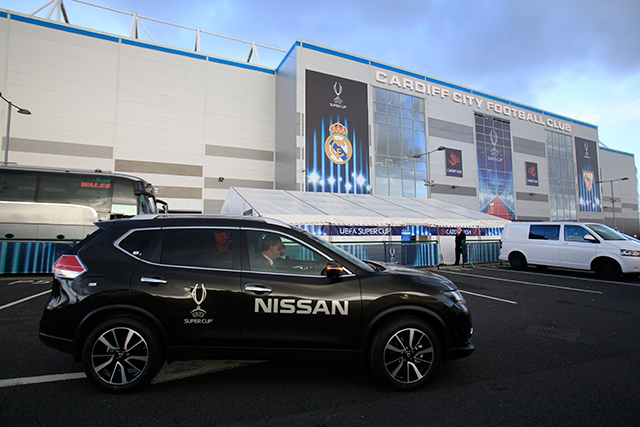
But as the ink dries on Nissan’s four-year deal with the Uefa Champions League, the brand’s global marketing director has his eyes firmly focused beyond the confines of any single platform.
Sponsorship gives us a platform to engagement and social media has created more social opportunities to connect with consumers
"The power of sport is that you can still create a big impact in the traditional sense. The big challenge for digital is that connection at scale isn’t that easy, but people watch big live events and the traditional media opportunity works very well," explains Roel de Vries, global head of marketing at Nissan.
The Uefa Champions League deal is the latest in a long line of sizeable sponsorship investments from the brand, which include the Rio 2016 Olympic and Paralympic Games, Olympic Team Brazil and the Heisman Trophy in American football.
"Whether that is giving more analysis and added value content or giving consumers opportunities to come to matches and win tickets, social media has created more social opportunities," says de Vries. "But it is the [sponsorship] platform which gives us the connection."
While rights holders have been dragging their heels in embracing the power of digital platforms in a misguided attempt to protect the value of their broadcast rights, brands have forged ahead with content-driven campaigns via social channels.
Nissan plans to amplify its sponsorship through added value content, with a focus on deeper analysis and data.

The universal fan
There is no doubt that Nissan is banking on the power of sport to sell its brand to a global audience. Just as the fashion industry has shifted its thinking to embrace ‘season universal’ to meet the demands of a global climate, Nissan is embracing the opportunity to capitalise on the global footprint to connect with a universal fan. This is a strategy that delivers significant economies of scale.
"I can finally do something, which we can utilise in all our markets," explains de Vries.
But can brands bank on having a universal appeal, or is the notion of a ‘global fan’ nothing but a media construct? "In my view there is a lot that makes people different. I am Dutch, I consider myself to be different to the French," says de Vries. "But when it comes to the emotion, the excitement and what people want to get out of a football game it's universal.
"Some brands believe that the Champions League is just about Europe and it is easy to underestimate its global impact. There are fans in Mexico, China, Brazil; it’s a mainstream event. Great sports events are becoming universal and football is the most universal of all," he adds.

Challenging status symbols
While football sponsorship has long been a lynchpin of automotive marketing in the post-recession era the sector is facing up to a consumer landscape in flux. In developed markets the conspicuous consumption that drove automotive sales has floundered.
Residents of London's Knightsbridge may still be blighted by the sound of the revving engines of supercars; but for the automotive market as a whole the car cannot rely on being the status symbol it once was.
"The interest in cars is changing, particularly amongst younger consumers and within cities. In more established markets owning a car is not that important to young people," admits de Vries.
But, these disinterested consumers will buy a car later in life. "It is not the status symbol that it was in the past but a car always makes a statement about who you, it's still an emotional purchase decision," he contends.
In line with this, investing in driving emotional engagement is key to Nissan’s strategy. As de Vries explains: "I believe that as a strong brand you have to become part of people’s lives.
"You buy a car every five to six years, by the time consumers come to make that purchase they have already formed their opinion. You need to be part of what people enjoy and you have to be meaningful."

Less, bigger and live
Looking ahead, Nissan is focusing its marketing spend on fewer, but bigger sponsorship properties. "When I grew up the daily news was attracting large audiences but now it's just live events.
Live events will keep on growing and the big properties such as the Olympics and the World Cup have grown strongly," says de Vries.
Emotional engagement remains the key to success, something de Vries believes a single platform can never deliver. "Our biggest challenge is to get people’s attention and just a billboard or a TV spot is not enough to do that, [fans] respect you for being part of the game," he says.
Nissan's aim over the next four year is to place itself at the very heart of the world’s biggest game in a bid to crack a global audience. As with all the best sporting endeavours it will require both skill and commitment.
Read next


.jpg)


.jpg)